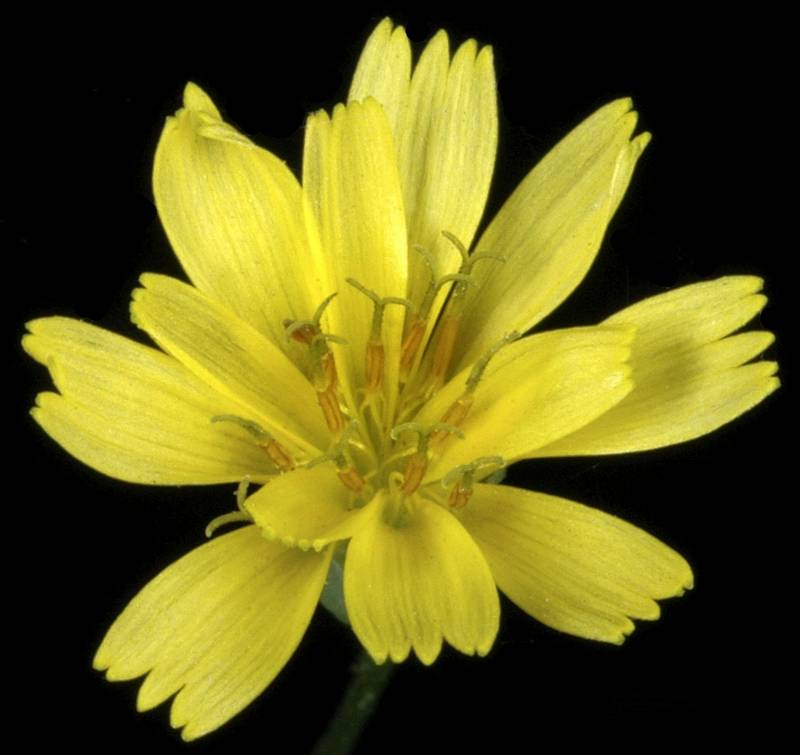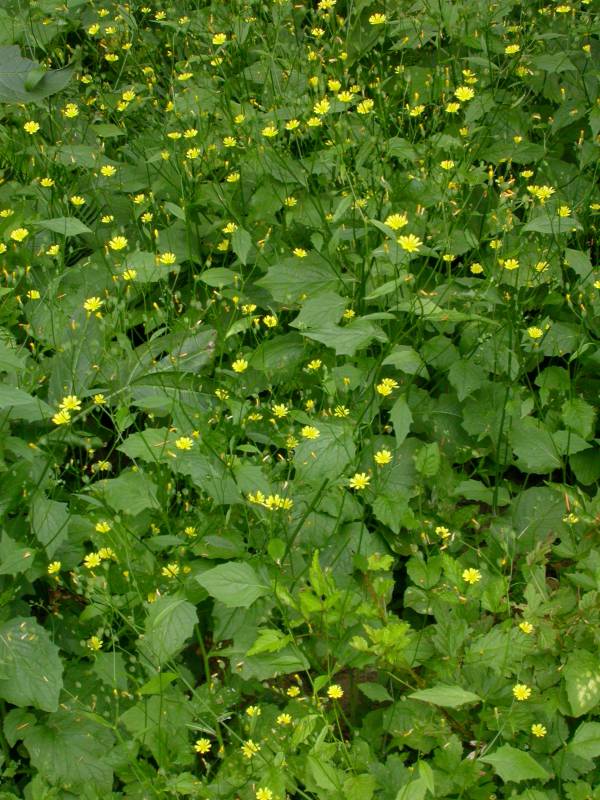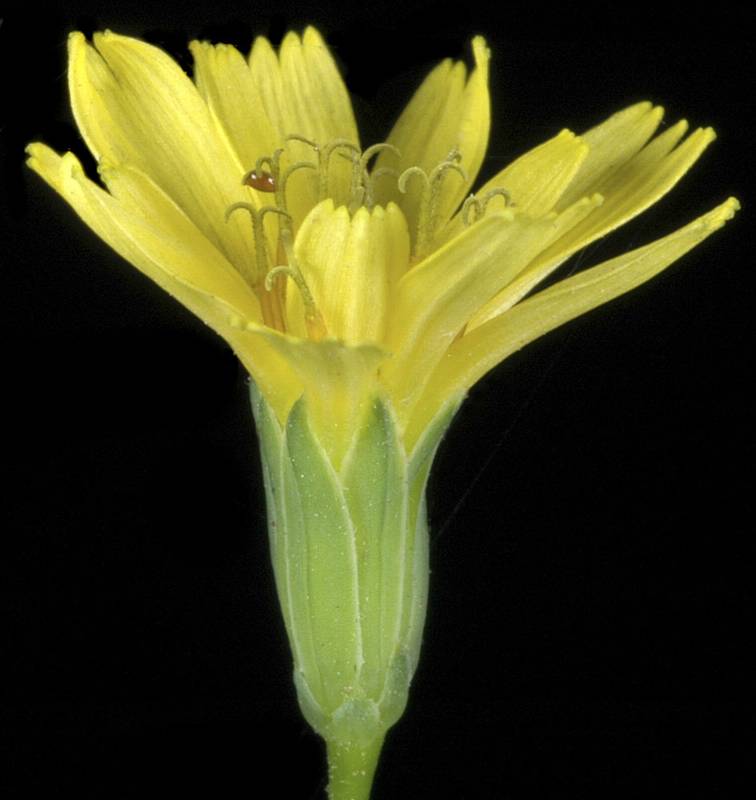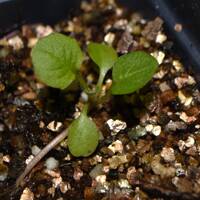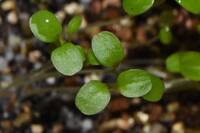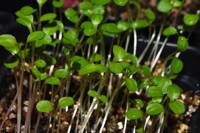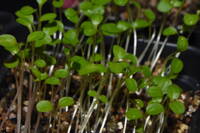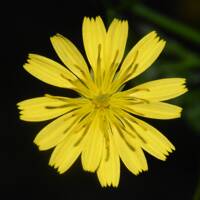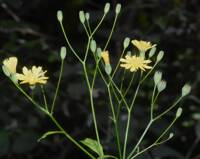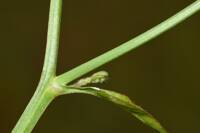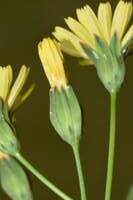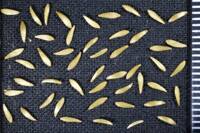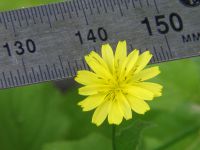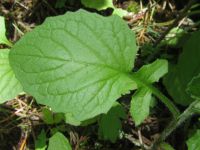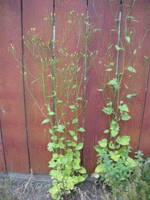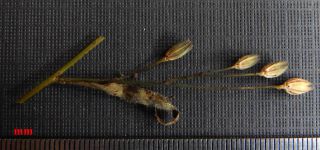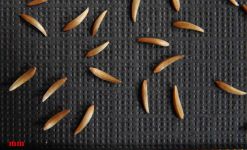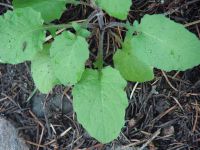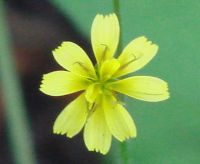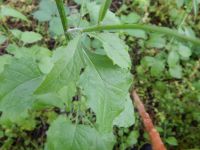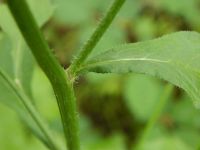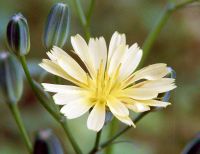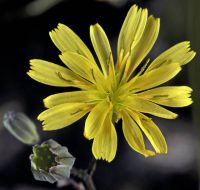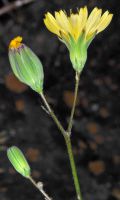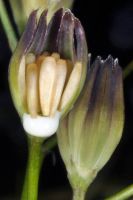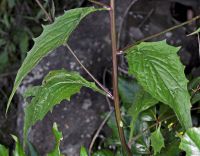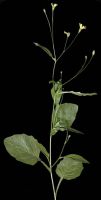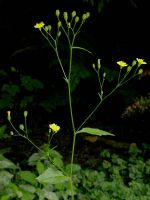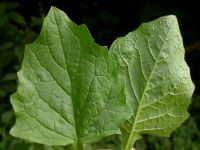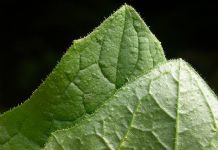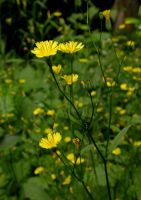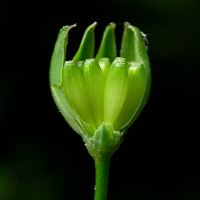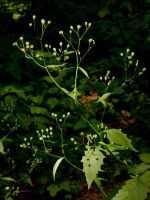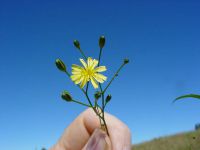Distribution: Occurring on both sides of the Cascades crest in Washington, but more often west of the crest; Alaska to California, east across much of North America to the Atlantic Coast.
Habitat: Disturbed areas including roadsides, wastelots, fields, and forest edge.
Flowers: May-July
Origin: Introduced from Eurasia
Growth Duration: Annual
Conservation Status: Not of concern
Pollination: Flies
Erect annual, 1.5-15 dm. tall, the single stem with short, stiff, blunt hairs or nearly glabrous, the juice milky.
Leaves thin, alternate, petiolate, with ovate to sub-rotund blade, shallowly toothed, 2.5-10 cm. long and 2-7 cm. wide, reduced, narrowed and less petiolate upward.
Heads several in an open inflorescence, the peduncles pale and hardened next to the head; involucres 5-8 mm. high, with 8 narrow, sub-equal, firm, keeled bracts that remain erect at maturity; corollas all ligulate, perfect, yellow, about 13; pappus none.
Achene 3-5 mm. long, sub-terete, curved, glabrous, narrowed at both ends.
Publication: Sp. Pl. 2: 811. 1753. 1753.
PNW Herbaria: Specimen records of Lapsana communis in the Consortium of Pacific Northwest Herbaria database
WA Flora Checklist: Lapsana communis checklist entry
OregonFlora: Lapsana communis information
E-Flora BC: Lapsana communis atlas page
CalPhotos: Lapsana communis photos

